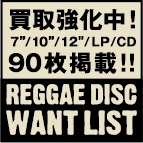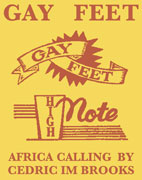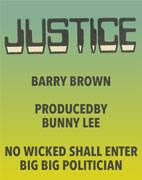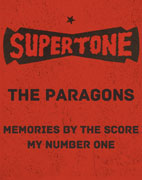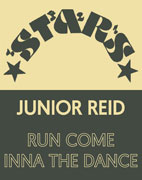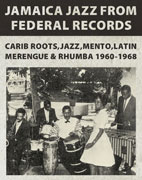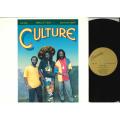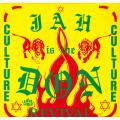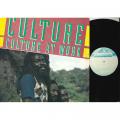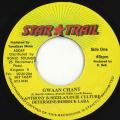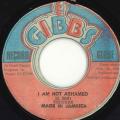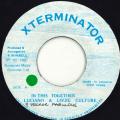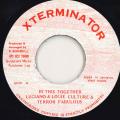CultureText by Harry Hawks
1977: As the two sevens clashed Culture's consummate combination of roots reggae, prophecy, portents, peace, love and unity became the order of the day
Culture
| Members | Joseph Hill Albert Walker Kenneth Paley |
| Active Period | 1976 - 2006 |
| Place of Establishment | Kingston Jamaica |
Joseph Hill, born 22nd January 1949 in the parish of St. Catherine, became a member of a local band named The Selected Few in 1968 playing percussion and singing harmonies for lead singer Freddie McKay. The Selected Few developed into The Soul Defenders and began to work regularly as one of Clement 'Coxsone' Dodd(Coxsone/Studio One)'s in-house bands at Studio One where they played on many Brentford Road hits. These included Freddie McKay's 'High School Dance' and Picture On The Wall' and they also backed Joseph Hill on his debut release in 1972: a Coxsone seven inch entitled 'Behold The Land'.
When The Soul Defenders broke up Joseph began playing in a variety of bands for tourists on the North Coast hotel circuit. In 1976 he founded The African Disciples with his cousin Albert 'Randolph' Walker and a friend Kenneth Paley who was also known as Kenneth (or Lloyd) Dayes. The trio started to move away from the influence of American soul group harmonies by using minor chords in their melodies and concentrating solely on songs of black history, black culture and repatriation forward to Africa.
Later that year Pat 'Jah Lloyd' Francis directed the trio to Maurice 'Blacka Morwell' Wellington(Blacka Morwell) , then working as in-house arranger at Joe Gibbs(Joel Gibson)' studio, and The African Disciples sung 'This Time' for him at their Retirement Crescent audition. Joe Gibbs(Joel Gibson) promptly gave them a new name, Culture, and 'This Time' was released not long after on his Belmont label. It was followed by 'I'm Not Ashamed', a version of The Heptones' 'I've Got A Feeling', and 'Jah Jah See Dem A Come' a version to the Studio One instrumental 'Heavy Rock'/Our Thing'. Culture were running things hot and with 'Two Sevens Clash', a dread warning of imminent doom prophesied by Marcus Garvey, Culture became the hottest property of the year.
Culture and The Mighty Two, alongside 'Blacka Morwell', then began work on the 'Two Sevens Clash' album. Their debut long player became an international best seller and one of the reggae albums of the year. The music's new crossover audience, including Britain's punk rockers, took it to their hearts and 'Two Sevens Clash' played incessantly in clubs up and down the country. 'Natty Dread Taking Over' and 'Zion Gate' both topped the Jamaican charts. The sound of Culture was everywhere.
"Me feel as the leader of the group me have a monstrous intention for this next album. But me don't encourage a man to just dance at it. Him must listen the words because reality stand forever..." Joseph Hill
Their second album, 'Baldhead Bridge', featured tracks recorded at the same sessions as 'Two Sevens Clash' in combination with hit singles such as 'Zion Gate' and 'Love Shines Brighter'. However, by the time it was released the trio had left Joe Gibbs(Joel Gibson) for Mrs Sonia Pottinger's Tip Top organisation on Orange Street. The raw energy of their early work with The Mighty Two was subtly refined, the trio adopted a slightly less confrontational approach, and the hits including 'Stop The Fighting' and 'Natty Never Get Weary' kept on coming. Their first long player for Mrs Pottinger, 'Harder Than The Rest', including songs first cut with Joe Gibbs(Joel Gibson) and recorded again for Tip Top, was released worldwide through Virgin's Front Line label in 1978. The simultaneous American release on April Records of the enigmatic 'Africa Stand Alone' album served to further enhance their ever growing stature. In April of that year a show stopping performance at the One Love Peace Concert at Kingston's National Arena, which they concluded with 'Stop The Fighting' and where Joseph Hill pleaded that money spent on weapons should be used to feed the poor, cemented their reputation forever.
The Jamaican audiences moved on to the dance hall style as the seventies drew to a close and many roots artists changed direction but Culture continued to trod the straight and narrow way even after Joseph Hill broke up with his two backing singers in 1982. The rhythms changed again, as always, and Joseph Hill adapted, adopted and moved on. His nagging version of Wayne Smith's digital breakthrough record 'Under Me Sleng Teng' entitled 'Capture Rasta', produced by Enos Mcleod and released on Music Track in 1986, demonstrated that he was equally at home with any style of rhythm. But Culture's hit making days in Jamaica were now in the past, however, the crossover audience remained faithful to roots reality reggae. Culture's international standing never ever diminished. Live on stage the charismatic Joseph Hill was always an effusive and enthusiastic performer and, he continued to tour and make music for an army of faithful followers, "typically averaging one hundred shows a year", all around the globe.
Joseph Hill died in Berlin on 19th August 2006 during a European tour after an entire career dedicated (or livicated) to spreading the message of Marcus Garvey, Rastafari and peace, love and unity.
"Straight, no hesitation, straight from Jah Rastafari..." Joseph Hill
Date Added: Feb 07, 2011 / Date Updated: Nov 02, 2012
Copyright (C) 2024 Dub Store Sound Inc.
Related Item(s)










